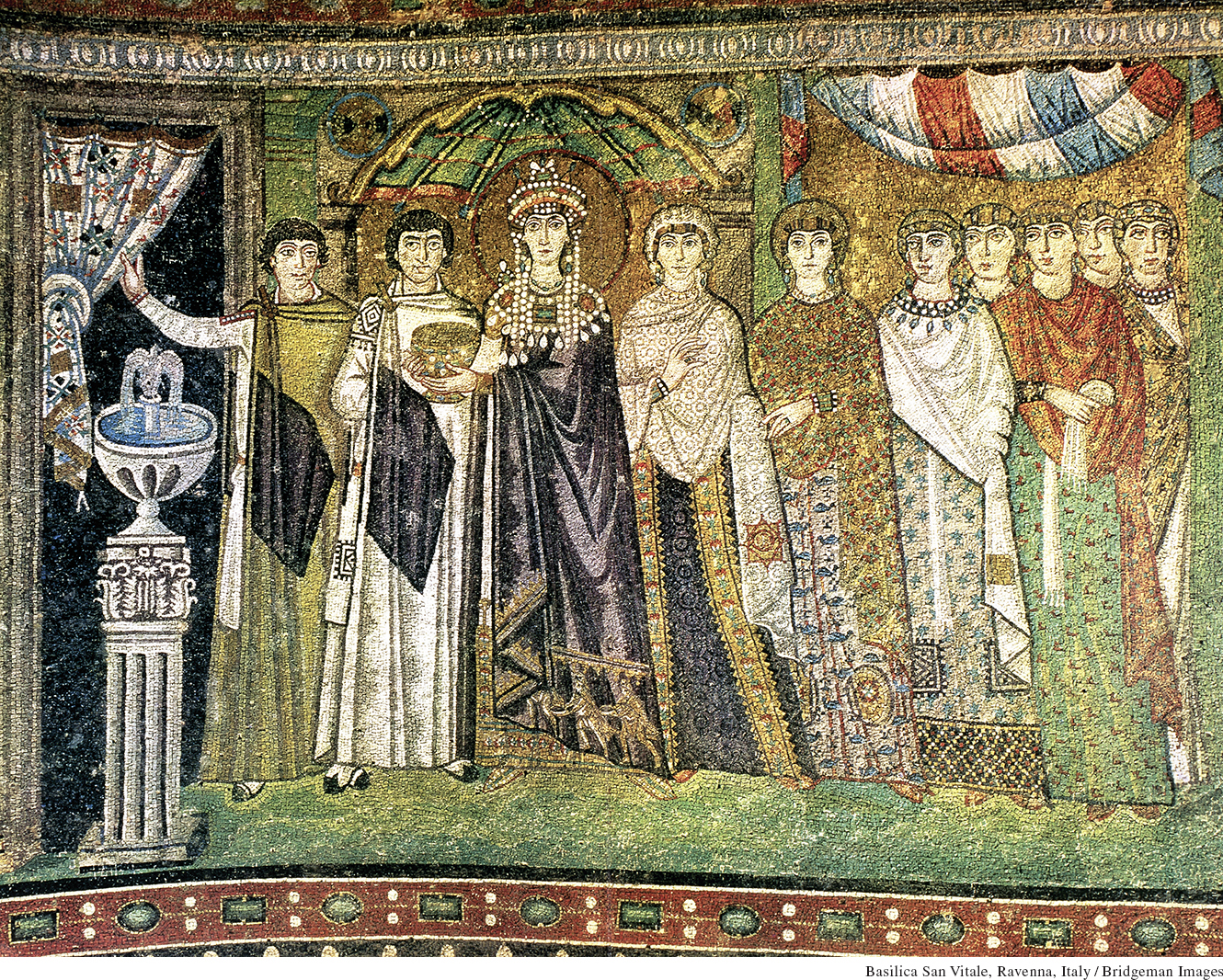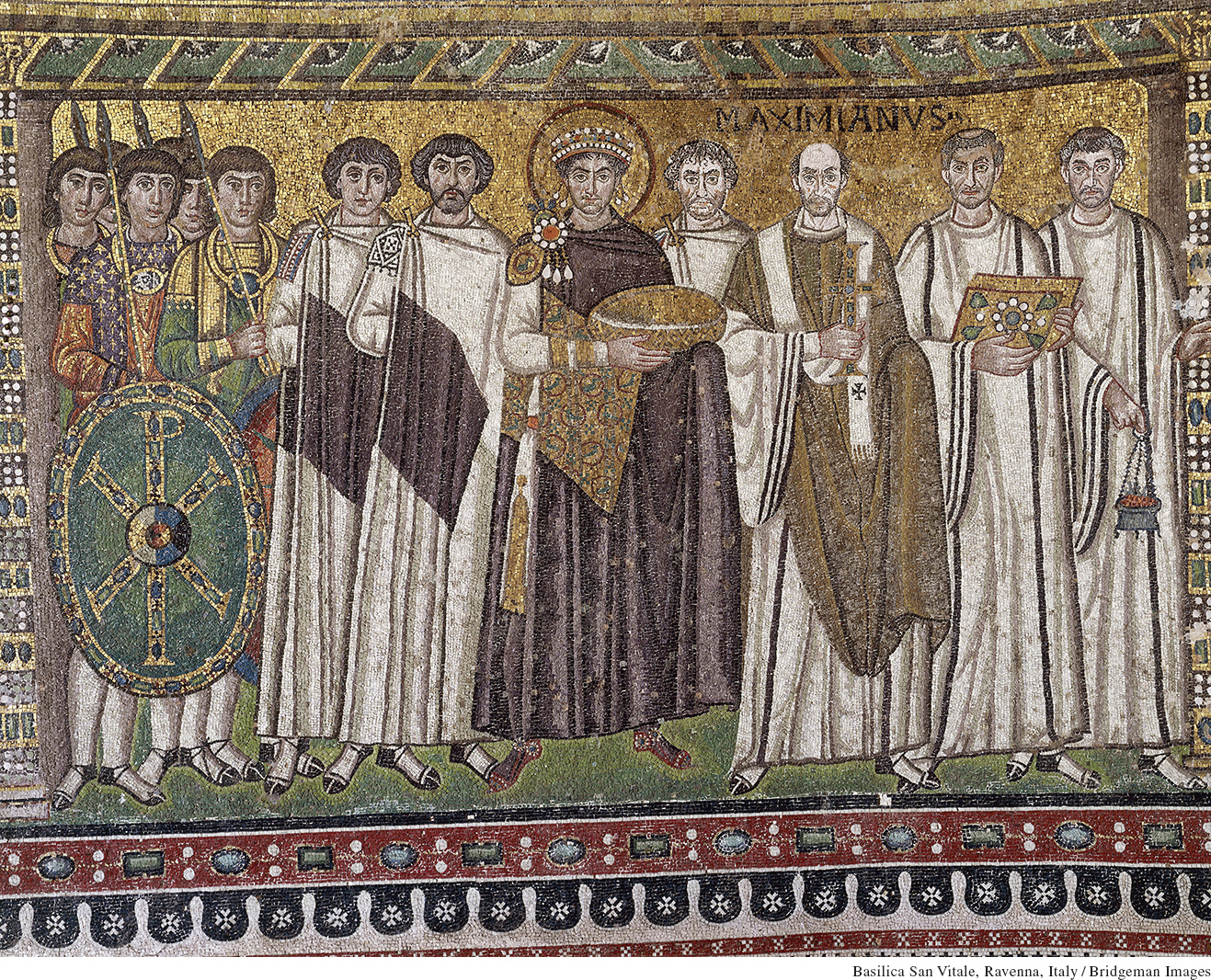Imperial Society in the Eastern Roman Empire
Imperial Society in the Eastern Roman Empire
The sixth-century eastern empire enjoyed a vitality that had vanished in the west. Its social elite spent freely on luxuries such as silk, precious stones, and pepper and other spices imported from India and China. Markets in its large cities teemed with merchants from abroad. Its churches’ soaring domes testified to its confidence in the Christian God as its divine protector.
The eastern emperors sponsored religious festivals and entertainments on a massive scale to rally public support. Rich and poor alike crowded city squares, theaters, and hippodromes on these lively occasions. Chariot racing aroused the hottest passions. Constantinople’s residents divided themselves into competitive factions called Blues and Greens after the racing colors of their favorite charioteers. Emperors sometimes backed one gang or the other to intimidate potential rivals.
The eastern emperors worked to maintain Roman tradition and identity, believing that “Romanness” was the best defense against what they saw as the barbarization of the western empire. They hired foreign mercenaries but also tried to keep their subjects from adopting foreign ways. The emperors ordered Constantinople’s residents not to wear barbarian-style clothing (especially heavy boots and furs, which the chariot racing fans favored) instead of traditional Roman attire (sandals or light shoes and cloth robes).
The emperors’ push for cultural unity was doomed to failure because everyday society in the eastern empire was widely multilingual and multiethnic. The inhabitants referred to themselves as Romans, but most of them spoke Greek as their native language and used Latin only for government and military communication. Many people retained their traditional languages, such as Phrygian and Cappadocian in western Asia Minor, Armenian farther east, and Syriac and other Aramaic dialects along the eastern Mediterranean coast. The streets of Constantinople reportedly rang with seventy-two languages.
Romanness definitely included Christianity, but the eastern empire’s theological diversity rivaled its ethnic and linguistic complexity. Bitter controversies over doctrine divided eastern Christians; emperors used violence against Christians with different beliefs—heretics they called them—when persuasion failed. They had to employ force, they believed, to save lost souls and preserve the empire’s religious purity and divine goodwill.
Most women in eastern Roman society lived according to ancient Mediterranean tradition, concentrating on their households and minimizing contact with men outside that circle. Law barred them from performing many public functions, such as witnessing wills. Subject to the authority of their fathers and husbands, women veiled their heads (though not their faces) to show modesty. The strict views of Christian theologians on sexuality and reproduction made divorce more difficult and discouraged remarriage even for widows. Sexual offenses carried harsher legal penalties. Female prostitution remained legal and common, but emperors raised the penalties for those who forced girls or female slaves under their control into prostitution.
Women in the imperial family could achieve prominence unattainable for ordinary women. Empress Theodora demonstrated the influence high-ranking women could have in the eastern empire. Uninhibited by her humble origins (she was the daughter of a bear trainer and had been an actress with a scandalous reputation), she came to rival anyone in influence and wealth. She participated in every aspect of Justinian’s rule, advising him on personnel for his administration, advocating for her doctrinal views in Christian disputes, and rallying Justinian’s courage at times of crisis. A contemporary called her “superior in intelligence to any man.”

Government in the eastern empire increased social divisions because it provided services according to people’s wealth. Officials received fees for activities from commercial permits to legal grievances. People with money and status certainly found this situation useful: they relied on their social connections and wealth to get what they wanted. The poor had trouble affording the payments that government officials expected.
This fee-based system allowed the emperors to pay their civil servants tiny salaries and spend imperial funds for other purposes. One top official reported that he earned thirty times his annual salary in payments from people seeking services. To keep the system from destroying itself through extortion, the emperors published an official list of the maximum fees that their employees could charge.
